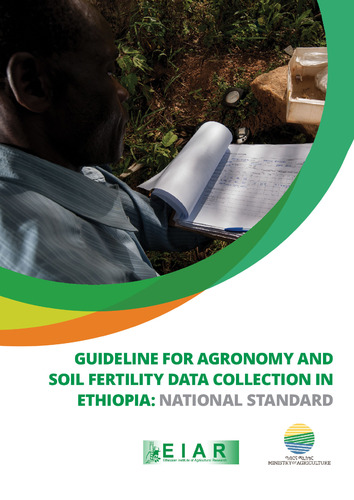Guideline for agronomy and soil fertility data collection in Ethiopia: National standard
Recently, recognition has been growing of the
power of data and information for better decisionmaking
and service provision in agriculture. To
ensure good data quality, an agreed standard to
collect, store, and share data along the agricultural
value chain is required.
With this background, the purpose of this guideline
is to provide guidance on standardizing soil and
agronomy data collection and thereby enhance
temporal and spatial data interoperability.
Standard field research design, data collection,
and data reporting are required for well-informed
meta-analyses and syntheses of agricultural
research data as well as for making these data
more accessible for calibration and evaluation of
process-based models. Hence, this guideline is
a contribution toward enabling meta-analysis of
different data collected over years and/or space to
accumulate evidence and generate new knowledge
or insights to facilitate informed decision-making
in the agricultural sector in general and in the crop
development subsector.
This guideline is compiled and intended for
use by researchers, academicians, students,
and other interested professionals in Ethiopia
and beyond. The guideline is developed based
on accepted standards and procedures in the
field. Nevertheless, it is not exhaustive in its
coverage of the soil and agronomic data types
and crops grown in the country. Hence, additions
and updates depending on the development of
research facilities, the ever-changing focus of
agricultural research and production systems, and
advances in technology are warranted.

